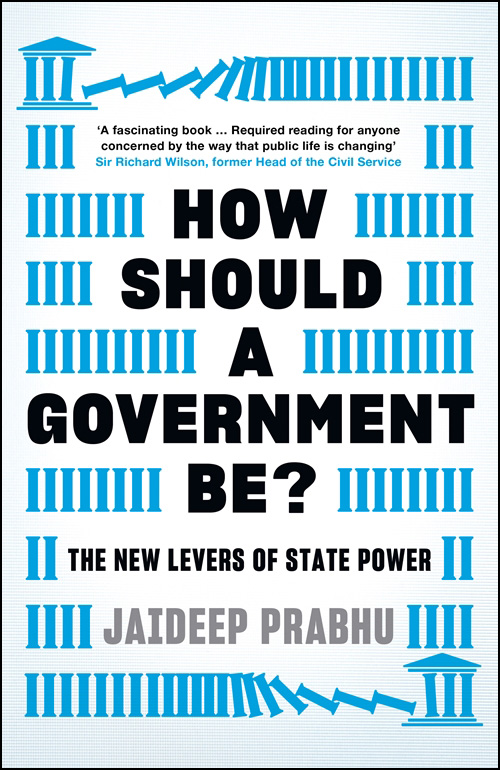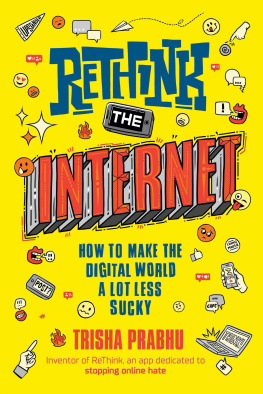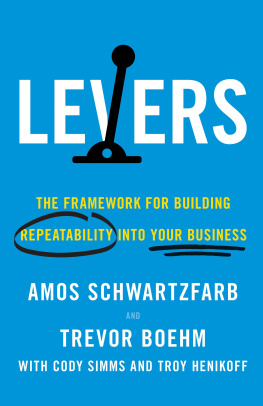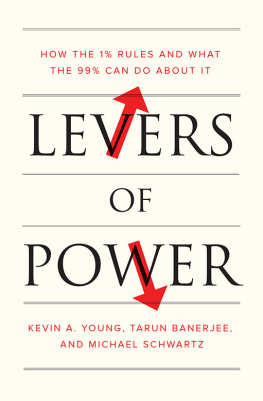Jaideep Prabhu - How Should A Government Be?: The New Levers of State Power
Here you can read online Jaideep Prabhu - How Should A Government Be?: The New Levers of State Power full text of the book (entire story) in english for free. Download pdf and epub, get meaning, cover and reviews about this ebook. year: 2021, publisher: Profile Books, genre: Politics. Description of the work, (preface) as well as reviews are available. Best literature library LitArk.com created for fans of good reading and offers a wide selection of genres:
Romance novel
Science fiction
Adventure
Detective
Science
History
Home and family
Prose
Art
Politics
Computer
Non-fiction
Religion
Business
Children
Humor
Choose a favorite category and find really read worthwhile books. Enjoy immersion in the world of imagination, feel the emotions of the characters or learn something new for yourself, make an fascinating discovery.

- Book:How Should A Government Be?: The New Levers of State Power
- Author:
- Publisher:Profile Books
- Genre:
- Year:2021
- Rating:4 / 5
- Favourites:Add to favourites
- Your mark:
- 80
- 1
- 2
- 3
- 4
- 5
How Should A Government Be?: The New Levers of State Power: summary, description and annotation
We offer to read an annotation, description, summary or preface (depends on what the author of the book "How Should A Government Be?: The New Levers of State Power" wrote himself). If you haven't found the necessary information about the book — write in the comments, we will try to find it.
How Should A Government Be?: The New Levers of State Power — read online for free the complete book (whole text) full work
Below is the text of the book, divided by pages. System saving the place of the last page read, allows you to conveniently read the book "How Should A Government Be?: The New Levers of State Power" online for free, without having to search again every time where you left off. Put a bookmark, and you can go to the page where you finished reading at any time.
Font size:
Interval:
Bookmark:

HOW SHOULD A GOVERNMENT BE?
Also by Jaideep Prabhu
Do Better with Less: Frugal Innovation for Sustainable Growth
(with Navi Radjou), 2019.
Frugal Innovation: How to Do More with Less
(with Navi Radjou), 2015.
Jugaad Innovation: Think Frugal, Be Flexible, Generate Breakthrough Growth
(with Navi Radjou and Simone Ahuja), 2012.
The new levers of state power
JAIDEEP PRABHU

First published in Great Britain in 2021 by
Profile Books Ltd
29 Cloth Fair
London
EC1A 7JQ
www.profilebooks.com
Copyright Jaideep Prabhu, 2021
1 3 5 7 9 10 8 6 4 2
The moral right of the author has been asserted.
All rights reserved. Without limiting the rights under copyright reserved above, no part of this publication may be reproduced, stored or introduced into a retrieval system, or transmitted, in any form or by any means (electronic, mechanical, photocopying, recording or otherwise), without the prior written permission of both the copyright owner and the publisher of this book.
All reasonable efforts have been made to obtain copyright permissions where required. Any omissions and errors of attribution are unintentional and will, if notified in writing to the publisher, be corrected in future printings.
A CIP catalogue record for this book is available from the British Library.
ISBN 978 1 78816 137 4
eISBN 978 1 78283 485 4
Typeset in Sabon by MacGuru Ltd
Printed and bound in Britain by Clays Ltd, Elcograf S.p.A.

For my parents and grandparents, and for civil service families like theirs around the world that are striving to make their governments work better.
So, what does all this mean for governments?
It was December 2012, and I was in New Delhi, delivering a talk at the Ministry of Finances Annual Economics Conference. I had just finished speaking about how technology was turning the world of business upside down when this question came at me from the depths of the audience. In my talk, I had spoken about how start-ups were using new technologies and new forms of organising to build digital empires that were disrupting incumbent firms across sectors worldwide. I had spoken about how these upstarts had pioneered a new way of doing business: working backwards from what customers wanted and then building organisations that used data from users to relentlessly improve their offerings. I had described how this revolutionary approach had upended the twentieth-century model that favoured large corporations with big budgets who had dominated their sectors by developing technology (sometimes for its own sake) and then pushing it onto mostly passive consumers. The world of business, I argued, now belonged to frugal, nimble, customer-centric firms; the top-down, bigger is better behemoths were a relic of the past.
I had spoken entirely about the private sector, but the voice in the audience wanted to know: What does all this mean for governments?
At first, I was taken aback by the question. It was clearly important and relevant. Whats more: the person asking it was a senior member of the Indian government. As a business school academic, I hadnt until then given the implications of technology for government much thought. Somehow, that day, I managed a response that I knew barely scratched the surface of a profound and deep issue. But the question would come back to me in various guises in the years to come.
When I was first asked that question in December 2012, I had spent nearly two decades researching and writing about innovation how firms use technology to develop new and better products for consumers and how they organise for it. In roughly the first half of my career I had studied how such innovation was done in the affluent West by large corporations. Through my research, I became familiar with the classic twentieth-century model of innovation in which bigger was believed to be better: innovation was about large projects big teams with massive budgets great secrecy and structured processes that took time to unfold.
Then, in the new millennium, I began to study innovation in emerging economies like India, where I had grown up. What I found there surprised me. In contrast to the Western bigger is better, highly structured model, firms in emerging markets were frugal and agile in how they went about innovation. They were good at doing more with less and at improvising and moving quickly with the market.
Inspired by this difference and vitality, I wrote a book about innovation in emerging markets and what Western organisations could learn from them. My co-authors and I called the book Jugaad Innovation, after the Hindi word jugaad, which is often used in India to describe such frugal and agile innovation. The book struck a chord with readers around the world. Translated into Portuguese, Dutch, French, Italian, Japanese and Mandarin, an early indication of its popularity came when pirated copies showed up on the sidewalks of Mumbai.
Soon after Jugaad Innovation came out, I began to notice a great deal of interest in frugal innovation in the West for the West. This was partly driven by the increasing numbers of Western consumers, already feeling the effects of decades of stagnant incomes, who were now reeling from the aftermath of the financial crisis and government austerity.
But there were positive drivers too. More and more ordinary people were increasingly empowered by a raft of new tools and resources to develop solutions to problems which only large corporations or governments could have taken on a decade or so before. This democratisation of innovation was giving rise to a frugal economy, underpinned by trends such as the sharing economy and the maker movement. What was exciting to see was how the internet along with social media, smartphones, cheap computers and software, 3D printers, maker spaces and Fab Labs, accelerators and crowdfunding was making it possible for small teams to engage in the entire innovation process from originating and developing solutions to manufacturing, promoting and distributing them to a global market. From this revolution came frugal services such as Airbnb and WhatsApp as well as products such as the Square Reader, an internet-of-things device that can accept credit card payments through a smartphones audio jack. (WhatsApp, for instance, was developed by four people in about nine months and with about $250,000 in seed funds.)
Inspired by this revolution sweeping across Western cities and campus towns, I wrote a second book, Frugal Innovation, in which my co-author and I described what large and small organisations were doing in this space and the principles that underpinned their efforts. That book, too, was translated into various languages, including French, Mandarin, Turkish, Ukrainian, Italian and Russian.
Once again, however, as in December 2012 in New Delhi, wherever I went, in talks I gave about these books, there was the inevitable question from someone in the audience: So, what does all this mean for governments? More often than not, someone in the audience would also furnish me with answers by speaking about what
Font size:
Interval:
Bookmark:
Similar books «How Should A Government Be?: The New Levers of State Power»
Look at similar books to How Should A Government Be?: The New Levers of State Power. We have selected literature similar in name and meaning in the hope of providing readers with more options to find new, interesting, not yet read works.
Discussion, reviews of the book How Should A Government Be?: The New Levers of State Power and just readers' own opinions. Leave your comments, write what you think about the work, its meaning or the main characters. Specify what exactly you liked and what you didn't like, and why you think so.







![Anirudh Prabhu [Anirudh Prabhu] - Beginning CSS Preprocessors: With SASS, Compass.js and Less.js](/uploads/posts/book/119148/thumbs/anirudh-prabhu-anirudh-prabhu-beginning-css.jpg)